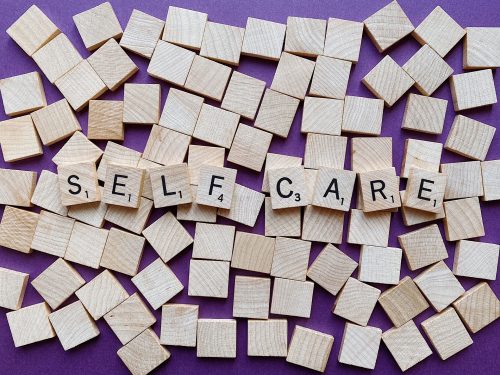Self-care is an essential aspect of maintaining a healthy and balanced life. It includes the practices that we engage in to take care of our physical, emotional, and mental well-being. However, many of us struggle to incorporate self-care techniques into our daily routine, either due to lack of time, knowledge, or just a lack of motivation. The good news is that with the help of a therapist, you can learn how to create and sustain a self-care routine that works for you.

What is Self-Care?
Self-care refers to the activities and practices that individuals engage in to take care of their physical, mental, and emotional health. It includes both preventative measures, such as getting regular exercise and eating a healthy diet, as well as activities that address specific needs or concerns, such as therapy or stress-management techniques. The goal of self-care is to promote overall well-being and prevent burnout or other negative health outcomes.
Why Self-Care Matters
Self-care is essential because it helps us to take care of our physical, emotional, and mental well-being, which in turn allows us better to handle the stresses and demands of daily life. Without proper self-care, we are at a higher risk of burnout, illness, and other negative health outcomes. Additionally, when we engage in self-care activities, we are better able to cope with stress, feel more energized, and experience more positive emotions.
Creating a Self-Care Plan with the Help of a Therapist

One of the biggest challenges to incorporating self-care into our daily routine is knowing where to start. A therapist can help you create a personalized self-care plan that addresses your specific needs and goals.
Assessing Your Needs
The first step in creating a self-care plan is to assess your needs. Your therapist can help you identify areas of your life where you feel the most stressed or unsupported. Together, you can identify specific self-care activities that will address these needs, such as yoga or meditation to help with stress management, or therapy to address emotional or mental health concerns.
Setting Realistic Goals
The next step is setting realistic goals for incorporating self-care activities into your daily routine. Setting unrealistic goals can be demotivating and make it harder to stick to a self-care plan. Your therapist can help you set goals that are challenging but achievable.
Developing an Action Plan
Once you have assessed your needs and set realistic goals, it’s time to develop an action plan. This includes identifying specific self-care activities, determining when and where you will engage in these activities, and setting a schedule for incorporating them into your daily routine. Your therapist can help you create an action plan that works for you, taking into account your schedule, lifestyle, and preferences.
Sticking to Your Plan
The final step is sticking to your plan. One of the most challenging parts of incorporating self-care into your daily routine is staying motivated and consistent. Your therapist can provide support and guidance to help you stay on track, overcome any barriers or challenges, and celebrate your successes.

Examples of Self-Care Techniques
There are many different self-care techniques that can be incorporated into your daily routine, but some examples include:
- Physical self-care: This includes activities that promote physical well-being, such as exercise, yoga, or massage.
- Emotional self-care: Activities that focus on managing emotions, such as therapy, journaling, or mindfulness practices.
- Mental self-care: This includes activities that promote mental well-being, such as reading, puzzles, or learning a new skill.
- Social self-care: This includes activities that involve social interactions and connections, such as spending time with friends and family, joining a group or club, or volunteering.
- Spiritual self-care: This includes activities that focus on connecting with a higher power, such as prayer, meditation, or religious practices.
- Creative self-care: This includes activities that involve expressing oneself creatively, such as painting, drawing, or writing.
- Relaxation self-care: This includes activities that promote relaxation, such as taking a bath, listening to music, or practicing deep breathing.
It is important to note that not every self-care technique will work for everyone, and it’s essential to find self-care activities that resonate with you and that you enjoy, that way, you are more likely to stick to them and make them a part of your daily routine.
Conclusion
Self-care is an essential aspect of maintaining a healthy and balanced life, but many of us struggle to incorporate it into our daily routine. A therapist can help you create a personalized self-care plan that addresses your specific needs and goals and helps you learn how to make self-care a consistent part of your life. By assessing your needs, setting realistic goals, developing an action plan, and sticking to your plan, you can learn how to create and sustain a self-care routine that works for you. Remember, self-care is not a one-time fix. It’s a lifestyle. With a therapist’s help, you can make it a habit and enjoy the benefits for a lifetime.